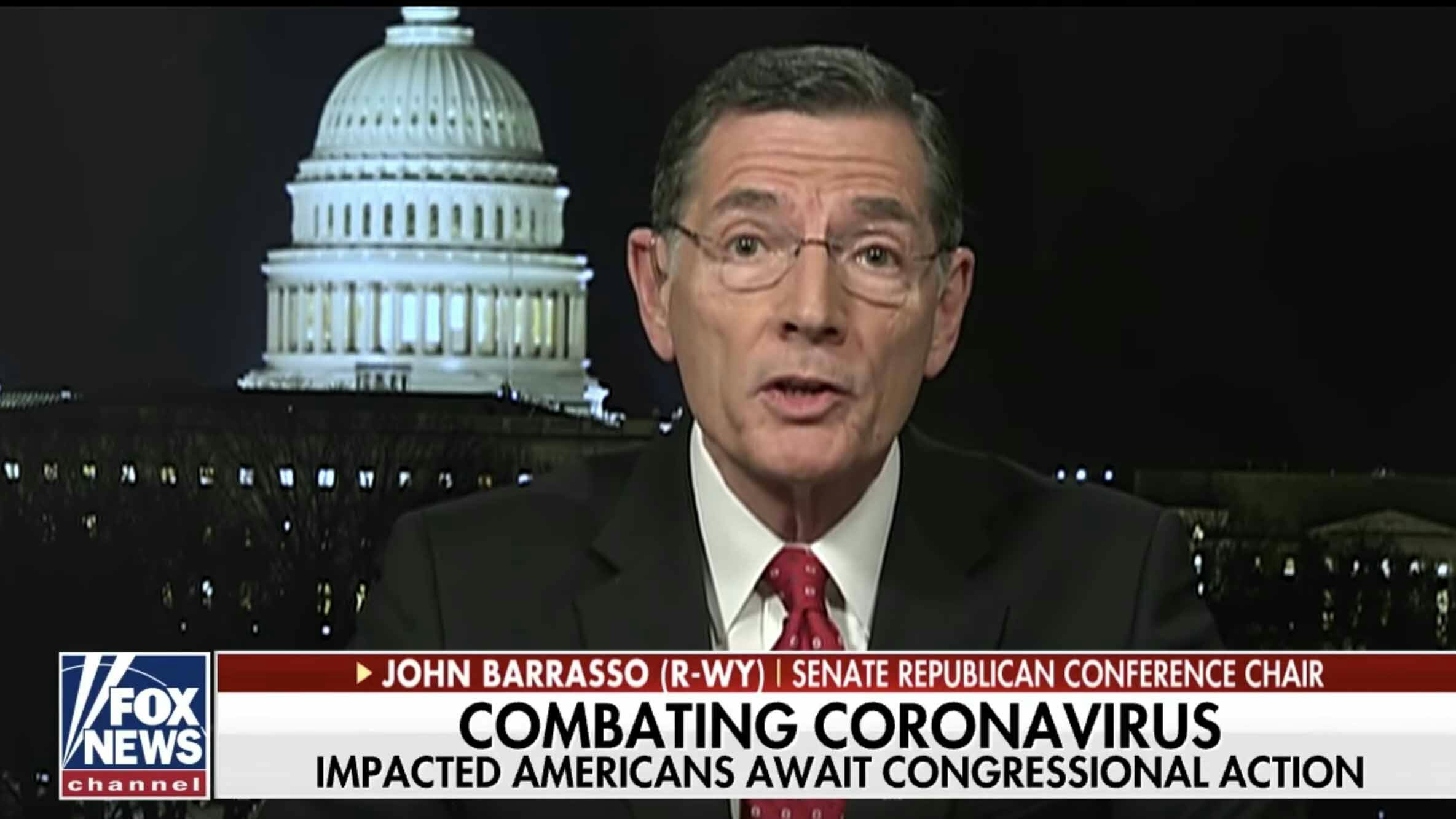U.S. Sen. John Barrasso supported a proposed coronavirus relief package being considered in Congress during an appearance on Fox on Monday.
“In a time like this, relief is necessary by the government,” Barrasso said. “We want to do it so it doesn’t burden businesses. This is the government’s opportunity and responsibility to help the American people, workers and families.”
The U.S. House of Representatives passed the emergency relief package on Saturday to help people feeling the impacts of the coronavirus.
The package includes certain measures to act as a safety net for families, providing some workers with two weeks of paid sick leave and up to three months of paid family and medical leave, according to the New York Times.
However, these benefits only apply to government employees or employees of businesses with fewer than 500 who are infected by the virus, quarantined, have a sick family member or are affected by school closings.
The U.S. Senate is expected to take up and possibly even pass the aid package sometime this week.
Barrasso noted in his segment that the first phase of the relief package was to help doctors and researchers secure the equipment they need. Phase two is focusing on families, but Barrasso added he wouldn’t be surprised if a third phase rolled out sometime this week.
“There are people in restaurants and bars that are out of work immediately,” he said. “There are immediate needs and the government has a responsibility to step in.”
He also wanted to ensure there would be aid for small and medium-sized businesses, using Wyoming as an example. However, he noted that the economy wouldn’t fully recover until the virus was under control. Currently, the World Health Organization has classified the virus as a pandemic.
The senator was also asked to give his medical opinion about social distancing and whether or not people across the country were taking sufficient measures to combat the virus.
While Barrasso admitted the plan to combat the virus was aggressive, he also felt it was more than appropriate.
“I think this will only work if people cooperate in ways we’re asking them to do,” he said in the closing moments of the segment. “It’s the millenials who will make a difference in spreading this disease. The most vulnerable people are seniors and those who have underlying conditions. Social distancing is very important. This is like nothing we’ve ever seen before. People’s lives have been impacted.”





